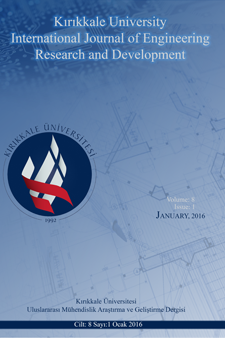Hafif Silah Mühimmatları Üretiminde Sertifikasyon Özgünlük ve Tasarım Gereksinimleri ile Kompozit Mühimmatlardaki Gelişmeler
Dünyanın birçok bölgesinde farklı seviyelerde silahlı çatışmalar devam etmektedir. Bu çatışmaların birçoğu ülkemiz coğrafyasına yakın bölgelerde yer almakta ve Türkiye’nin güvenliğini yakından ilgilendirmektedir. NATO gibi çokuluslu güçler bu çatışmaların önlenmesine yönelik tedbirler almakta ve çoğu zaman askeri kuvvetleri vasıtasıyla bu çatışmalara müdahil olmaktadırlar. Çatışmalar, doğal olarak ülkelerin savunma güçlerine ihtiyaç duymasına neden olmaktadır. Dolayısıyla, gün geçtikçe artan ihtiyaçların merkezinde hafif silah ve hafif silah mühimmatı ihtiyacı yer almaktadır. Bu çalışmada, hafif silahlar ve hafif silah mühimmatların üretimine yönelik Makine ve Kimya Endüstrisi Kurumu, NATO Ordu Silahlanma Grubu, ABD Ordusu Araştırma Geliştirme Mühendislik Komutanlığı, ABD Ordusu Silahlanma Araştırma Geliştirme ve Mühendislik Merkezi ve Alliant Techsystems Inc. verisinden faydalanılmak suretiyle hazırlanan değerlendirmelere yer verilmektedir.
Anahtar Kelimeler:
Hafif Silah Mühimmatları, Mühimmat Üretimi, Mühimmat Sertifikasyonu, Mühimmat Tasarımı, Kompozit Mühimmatlar
Certification Originality and Design Requirements in Production of Light Weapon Ammunition and Developments in Composite Ammunition
Various levels of armed conflicts continue in many parts of the world. Many of these conflicts occur in regions close to our geography and are closely related to the security of Turkey. Multinational forces such as NATO are taking measures to prevent these conflicts and are often involved in these conflicts through their military forces. Conflicts naturally force countries to need security measures. Therefore, the need for light weapons and light weapons ammunition is at the center of these increasing needs. In this study, evaluations are driven by using Machine and Chemical Industries Corporation, NATO Army Armaments Group (NAAG), US Army Research Development Engineering Command (RDECOM), US Army Armament Research Development and Engineering Center (ARDEC) and Alliant Techsystems Inc. (ATK) data for the light weapons and the production of light weapon ammunition.
Keywords:
Ammunition Certification Ammunition Design, Light Weapon Ammunition, Ammunition Production, Ammunition Certification, Composite Ammunition,
___
- 1. David DeClerq, Trends in Small Arms and Ligt Weapons Development: Non-Proliferation and Arms Control Dimensions, Department of Foreign Affairs and International Trade, Canada, 1999.
- 2. Galeotti, M., The rising influence of Russian special forces, Jane’s Intelligence Review, December 2014.
- 3. King, B., Surveying Europe’s Production and Procurement of Small Arms and Light Weapons Ammunition, Graduate Institute of International and Development Studies, Geneva, Switzerland, 2010.
- 4. T.C. Cumhurbaşkanlığı Savunma Sanayi Müsteşarlığı, Yıllık Faaliyet Raporu, Ankara, 2017.
- 5. T.C. İçişleri Bakanlığı Basın ve Halkla İlişkiler Müşavirliği, Basın Açıklaması, Ankara, 08 Kasım 2017.
- 6. Carlucci, D. E., Jacobson, S. S., Ballistics Theory and Design of Guns and Ammunitions, CRC Press, Taylor & Francis Group, Boca Raton, FL, USA, 2008.
- 7. NATO Combination Electronic Pressure Velocity and Action Time (EPVAT) Test Procedure PFP (NAAG-LG/3-SG/1) D1, Chapter 12, NATO.
- 8. SAAMI Technical Committee SAAMI/ANSI standards https:// www.saami.org/
- 9. Commission Internationale Permanente pour l’épreuve des armes a feu portatives (C.I.P.), Edition Synthétique des décisions C.I.P en vigueur Bureau Permanent C.I.P, Brussels, 2011.
- 10. Türk Standartları Enstitüsü Kurumu (TSEK) Türk Standartlarına Uygunluk Belgesi.
- 11. ISO 9000 Kalite Yönetimi ve Kalite Güvencesi Sistem Standartlar Seçim ve Kullanım Kılavuzu.
- 12. Allied Quality Assurance Publications (AQAP) 2120 Üretim için NATO Kalite Güvence Gerekleri, Baskı 3, Aralık 2009.
- 13. Siekman, M.W., Anderson, D. A., Boyce, A. S., Small-Arms Ammunition Production and Acquisition: Too Many Eggs in One Basket, Army Sustainment, 42, 2010.
- 14. Walker, R. E., Cartridges and Firearm Identification, CRC Press, Taylor&Francis Group, Boca Raton, FL, USA, 2013.
- 15. Belford, A., Cvetkovska, S., Holcova, P., Jovanovska, M., Petrovic, P., Çela, L., The Organized Crime and Corruption Reporting Project (OCCRP), Strnad’s Balkan Factory Buy-up, Czechoslovak Group, 2018.
- 16. Small Arms Survey, A Project of the Graduate Institute of International and Development Studies, Cambridge University Press, 2015.
- 17. Pellegrino, D., Kirkman, C., NATO Small Arms Ammunition Interchangeability via Direct Evidence Testing, US Army Research Development and Engineering Command, 2011.
- 18. Halpern, B. H., NATO Weapons and Sensors Working Group Panel Discussion, Armament Systems Forum, 2017.
- 19. NATO Army Armaments Group (NAAG), Multi-Calibre Manual of Proof and Inspection (M-C MOPI) for 5.56 mm, 7.62 mm, 9 mm and 12.7 mm Ammunition, 2013.
- 20. Arvidson, P., NATO Infantry Weapons Standardization, International Infantry & Joint Services Small Arms Systems Symposium, Exhibition & Firing Demonstration, Dallas, TX, US, 2008.
- 21. Rottman, G. L., The Big Book of Gun Trivia, Osprey Publishing, Oxford, UK, 2013.
- 22. Hill, P., Joint Armaments Forum Exhibition & Technology Demonstration, Phoenix, AZ, US, 2014.
- 23. Wallace, J. S., Chemical Analysis of Firearms Ammunition and Gunshot Residue, 2nd Edition, Taylor&Francis Group, CRC Press, 2018.
- 24. Wins, C., US Army Research Development and Enginering Command, US Army Manufacturing Technology, 2018.
- 25. Chaplin, R., Design and Implementation of Reduced Range Training Ammunition, Armament Systems Forum & Firing Demonstration, Fredericksburg, VA, US, 2017.
- 26. Broden, D., Armament System Forum, Armament System Response to the Evolving Threat Spectrum, The National Defense Industrial Association, Indianapolis, IN, US, 2018.
- 27. Dutelle, A.W., Becker, R.F., Criminal Investigation, Fifth Edition, Jones & Bartlett Learning, Burlington, MA, USA, 2019.
- 28. Lillie, S., Corbett, M.T., O’Donnell, R., How Much Does A Bullet Cost?, Army, 2002.
- 29. Ness, L., Williams, A.G., Jane’s Ammunition Handbook, 17th Edition, Surrey, UK, 2008.
- Başlangıç: 2009
- Yayıncı: -
Sayıdaki Diğer Makaleler
Mechanical & Microstructural Analysys Of Armor Steel Welded Joints
Ahmet YÖNETKEN, Günnur PESMEN, Ayhan EROL
Sodyum Silikoflorürün Mikroyapı ve Isıl Davranışlarının İncelenmesi
Aslı ÇAKIR ARİANPOUR, Farzin ARİANPOUR, Behnam ALİ
Dıştan Dişli Pompalarda Diş Ucundaki Kaçakların Teorik ve Sayısal Karşılaştırılması
Mustafa Gökhan MURAT, Aziz Barış BAŞYİĞİT
Yasemen KALPAKLI, Şilan EKİNCİ, Dilan ERTAŞ
Opak Çömlek Sırına Bazalt İlavesinin Araştırılması
Silindirle Sıkıştırılmış Beton Karışımlarında Kullanılan Malzemelerin Özellikleri
Ali MARDANİ, Sultan Husein BAYQRA, Süleyman ÖZEN, Zia Ahmad FAQİRİ, Kambiz RAMYAR
Isıtılan Mekanlarda İç ve Dış Ortam Sıcaklıklarına Bağlı Mevsimsel Yoğuşma Analizi
